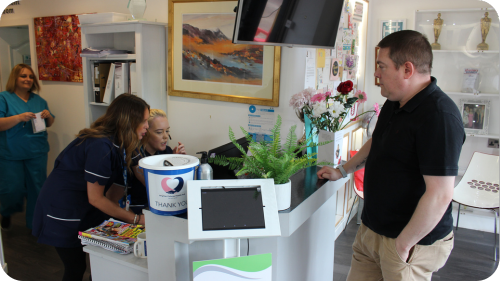Financial Framework 2025-26
On 30th June 2025, the Community Pharmacy Scotland (CPS) Board was informed that a 4% uplift will be applied to the Global Sum for 2025/26, amounting to approximately £9.31 million in total. This year’s deal was agreed in two parts, with Part One finalised and accepted on 1st May 2025. Part One outlined the mapping of £20 million from the Drug Tariff to support key funding lines, along with a £10 million increase in the Guaranteed Minimum that can be retained from the Drug Tariff, bringing it to £120 million. This funding will be used directly to support additional costs faced by the network, such as the impact of National Insurance contributions.
Please note: The package sets out a defined amount of funding (remuneration) available for the provision of core services, referred to as the Global Sum, from which all contractors will benefit. We explain these funding "pots" below.
There are, however, small elements of national funding that fall outside the Global Sum. For example, not all contractors will utilise arrangements for stoma dispensing or access to Medicines Complete, which are technically standalone contracts. Collectively, we refer to these as the Non-Global Sum.
The financial package also outlines the arrangements for the Reimbursement element of the annual agreement—specifically, the conditions surrounding income generated from purchasing certain medicines at a lower cost than the NHS reimbursement price.
Please see below for a breakdown of each element:
As touched on in the introduction to pharmacy funding, part of a pharmacy’s income is dependent on the money made on part 7 drug tariff medicines they source and provide on prescription – this profit is often referred to as the margin
Advance payments are made to support contractor cashflow while actual payment for the prescriptions submitted is calculated.
Over the years as the pharmacy contract has changed, different service payments have been joined together into what we now call the Establishment Payment.
The Pharmaceutical Needs Weighting Payment (PNWP) makes the payment for the additional pharmaceutical needs (and associated workload) from age and deprivation characteristics of the people using the pharmacy.
The Service Efficiency Payment is for achieving a target level of electronic claiming for prescriptions submitted for pricing by Practitioner Services.
Quality and Service Development supports the operation of a service for coeliac patients and the development of a safety culture
The payments for MCR are made using one of the more complex models in our financial package and is based on the number of people registered for the service (capitation model) at the end of a given month.
Base payment of £1,000 and an activity payment from the activity payment pot of £1.308m where their activity level is above a specified minimum of 100.
A monthly fee of £3,000 will be made to the contractor named on the Board’s pharmaceutical list at the 1st day of that month for each full month the service is made available in the community pharmacy.
Scottish Government has agreed to an annualised pool of £1m to support the training of employee Pharmacist Independent Prescribers in community pharmacies.
To support the Post Registration National Foundation Programme for Newly Qualified Pharmacists, a monthly fee of £1,000 will be made available to the contractor named on the pharmaceutical list on the 1st of each month where the newly qualified pharmacist has joined the PRFP scheme.
The Scottish Government campaign activity for 2024-25 is currently being finalised and a more detailed list for the year will be issued in due course.
The annualised pool of £3.58 million to recognise the work undertaken in the treatment of unscheduled care.
The total Establishment Payment plus Dispensing Pool Payment plus Pharmaceutical Needs Weighting Payment made to an Essential Small Pharmacy (ESP) each month, are subject to a guarantee minimum target income of £4,412 for full-time contractors.


















Advance payments are made to support contractor cashflow while actual payment for the prescriptions submitted is calculated.